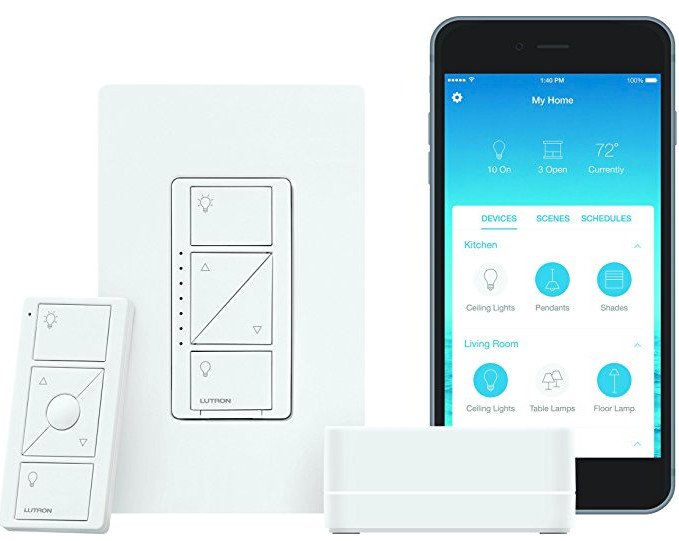No neutral wire in your switch box? We have you covered.
Smart light bulbs are awesome, but they aren't always an option. That's when you look to the next link in the chain and consider a smart switch. You can control everything on the switched circuit at once, and most are even dimmable with the right lamps. Connecting them is also fairly easy, too — just shut the power down and move the wires from one switch to the other. Unless your switch box doesn't have a neutral wire.
A lot of switch boxes won't have a neutral wire because of how the wiring inside the walls was done. A switch doesn't need a neutral wire — it simply breaks the connection on the line that supplies power to a light or whatever else it controls. But most smart switches, like the ones from Wemo or GE, do require a neutral wire. This is because they need to be powered on all of the time for the Bluetooth or Wi-Fi radio to operate. This can be a problem if you want to build out a smart lighting system.
Never think you know what a wire's function is based on its color! It's common for a switch box without a neutral wire to use a white and black wire as the switched "hot" lead because house wire comes in a roll with a black, white, and bare copper lead encased in its shell. In this case, the white wire could have current and should be treated as such. Contact a licensed electrician if you have any doubts about what you see or are uncertain of anything.
If you're faced with this issue there are several things you can do.
- Bite the bullet and use smart lamps instead of a smart switch. Smart bulbs can be expensive if you need to outfit some lighting fixtures, especially if they use a non-standard base for the individual sockets. But having an electrician rewire the circuit is expensive, too.
- Make sure there isn't a neutral wire in the switch box. If you see other wires connected by a wire nut in the back of the junction box, there's a good chance one of them is a neutral circuit. If this is the case, an electrician can tell you if you can tap into it and supply power to a smart switch. Don't go poking in there unless you know what you're doing, though!
- Contact an electrician to rewire the switch.
None of those solutions are great, but as of April 2018 all Z-Wave switches require a neutral wire to operate. If you find an older model that works without one, it's not going to be compatible with any newer parts — and there are a lot of older models still floating around shopping websites and home improvement stores. Thankfully, there are two other solid options.
Lutron Caseta dimmable switches
Lutron makes a complete smart lighting system that will work without a neutral wire. The switches are rated for 150 watts of LED or 600 watts of incandescent/halogen lamps and are fully dimmable.
Each switch comes with its own remote, but you can also use a Lutron bridge to add them to an existing Wink network or control them from your phone with the Lutron app or Google Assistant, an Amazon Echo, Google Home, or through HomeKit. They also come with a designer Claro wall plate and are ready to go out of the box.
Lutron's smart switches are very highly rated and are high-quality electrical components. You might already have Lutron "dumb" switches in your house. The only drawback to using them is the price. A Caseta starter kit including one switch, one remote, and a Lutron Smart Bridge runs between $90 and $100, and an individual switch with a remote will set you back about $50. You can connect up to 50 Lutron devices to the bridge so you'll probably only need one. There's even a starter kit if you don't know where to... start.
All in all, these are great switches from a company that's been making electrical since the 1950s and well worth the initial price. They're also the best option that doesn't involve calling an electrician for most of us.
Ecolink Automated Switch Module
Ecolink makes a much cheaper but less elegant option called an Automated Switch Module. It's a cover that attaches to your existing switch and is controlled via a Z-Wave smart hub like the one from SmartThings. When activated, it physically moves the switch from one position to the other. That's pretty genius.
It's also not especially attractive and mechanically moving parts tend to stop moving eventually. But still, this is a novel approach to a difficult problem. We love those! An Ecolink Automated Switch Module costs about $40 and you can still use the switch by hand.
What's your solution?
How do you fix smart home issues? Stubbornly? Let us know in the comments!




Post a Comment